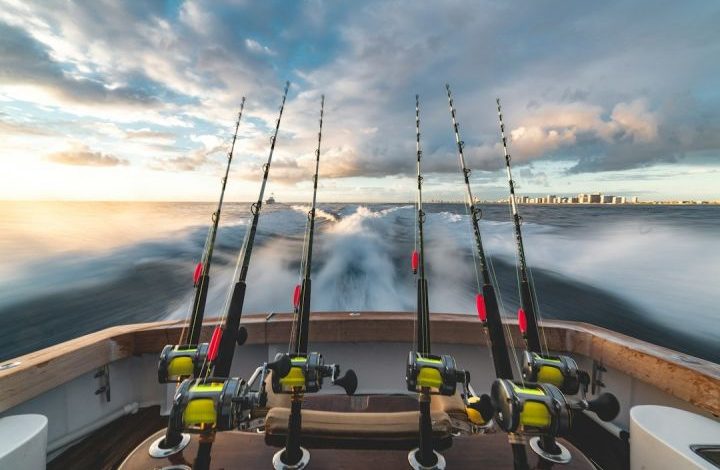How Does Barometric Pressure Affect Fishing?

Barometric pressure, also known as atmospheric pressure, refers to the weight of the air pressing down on the Earth’s surface. It plays a significant role in various weather conditions, but did you know that it can also affect fishing? Yes, you heard it right! Barometric pressure can impact the behavior of fish and ultimately determine your success on your next fishing trip. In this article, we will explore the fascinating relationship between barometric pressure and fishing.
Understanding Barometric Pressure
Before we delve into how barometric pressure affects fishing, it’s essential to understand what it is and how it is measured. Barometric pressure is measured using a barometer and is typically given in units of millibars (mb) or inches of mercury (inHg). The average atmospheric pressure at sea level is around 1013.25 mb or 29.92 inHg.
High Barometric Pressure
When the barometric pressure is high, it indicates stable weather conditions and clear skies. High-pressure systems are associated with sinking air, which leads to stable atmospheric conditions. This typically results in calm and sunny days, making it suitable for fishing. Fish tend to be more active and are more likely to be found near the surface during these conditions. It is an excellent time for surface lures and topwater fishing.
Low Barometric Pressure
On the other hand, low barometric pressure indicates unstable weather conditions. Low-pressure systems are associated with rising air, which can lead to cloud formation, rain, and storms. Fishing during low-pressure systems can be challenging as fish tend to become less active and move to deeper waters. They may also seek cover near structures such as rocks or vegetation. During these conditions, it is advisable to use deeper fishing techniques such as bottom fishing or trolling.
Barometric Pressure Changes
Apart from the actual pressure reading, the rate at which barometric pressure changes can also impact fishing. Rapidly changing pressure, whether it’s increasing or decreasing, can influence fish behavior. Fish are highly sensitive to changes in pressure and may become more active or less active depending on the direction of the change.
Falling Barometric Pressure
When the barometric pressure is falling, it indicates an approaching low-pressure system and potentially changing weather conditions. This can trigger feeding behavior in fish as they sense a potential change in their environment. They may become more active and feed more aggressively, making it an excellent time for fishing. However, keep in mind that fishing during falling pressure can be challenging due to changing weather conditions.
Rising Barometric Pressure
Conversely, when the barometric pressure is rising, it indicates improving weather conditions and a stable atmosphere. Fish may become less active during these periods as they adjust to the changing conditions. However, fishing during rising pressure can still be productive, especially if you target deeper waters or use techniques that mimic injured prey.
Tips for Fishing Based on Barometric Pressure
Now that we understand how barometric pressure affects fishing, here are some tips to maximize your success:
1. Monitor the barometric pressure: Keep an eye on the weather forecast and monitor the barometric pressure before planning your fishing trip. Look for stable or falling pressure for the best fishing conditions.
2. Adjust your techniques: During high-pressure systems, focus on surface lures and topwater fishing. In low-pressure systems, try deeper fishing techniques such as bottom fishing or trolling.
3. Be adaptable: Fish behavior can be unpredictable, so always be prepared to adjust your techniques and strategies based on the current conditions.
4. Experiment: Don’t be afraid to try different lures, baits, and fishing spots to see what works best during different barometric pressure conditions.
Conclusion
Barometric pressure is a critical factor that can significantly impact fishing. Understanding how it affects fish behavior can greatly increase your chances of success on your next fishing trip. Keep an eye on the barometric pressure, adapt your techniques, and be open to experimentation. By doing so, you’ll be well on your way to becoming a more successful angler. Happy fishing!
